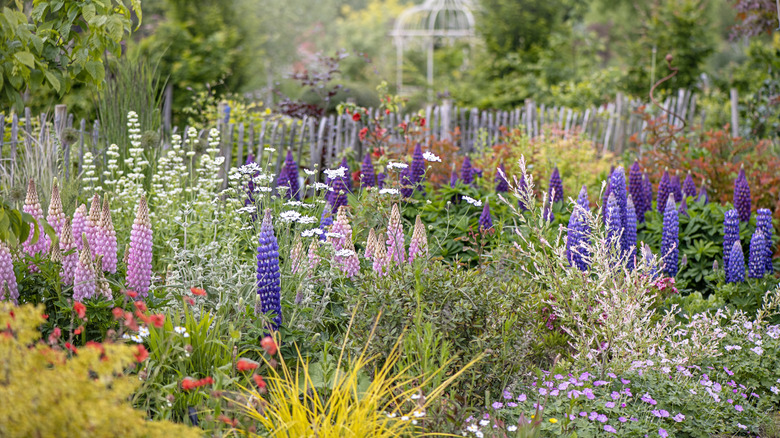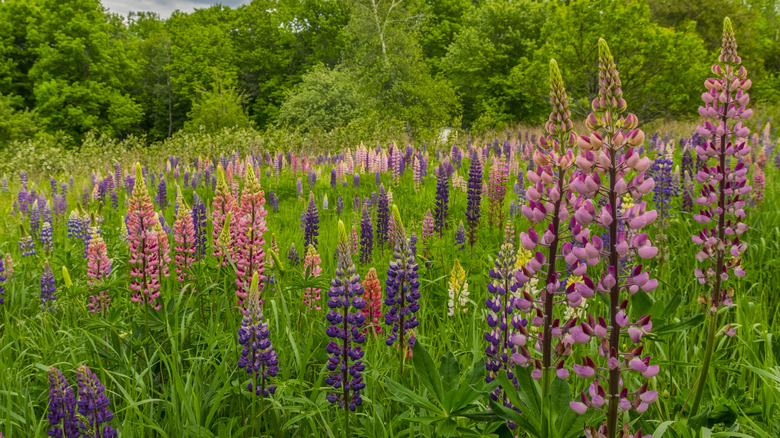The Low-Maintenance Flowering Plant That Naturally Boosts Soil Health
Lots of different nutrients contribute to soil health. One of the most important, along with potassium and phosphorus, is nitrogen. It's vital for leafy growth and helps plants to turn the sun's energy into food. Fortunately, there are easy ways to tell if your soil is lacking nitrogen and a number of things you can do about it.
One of the most rewarding tactics is to grow plants that will naturally enrich your soil without using fertilizers and chemicals. One particularly attractive, low-maintenance option is lupines (Lupinus). These plants produce dense, attractive flower spikes that are a favorite with hummingbirds. With dozens of different species to choose from, there's something to suit just about any planting scheme. The key to their ability to boost soil health is that they are a type of legume, which draws nitrogen from the air, down through the plant, and fixes it into the ground. The depth of their roots also helps break up compacted soil.
Lupines can be annual or perennial and are available as seeds or potted plants (the latter normally the perennial varieties). They are easy to grow and will more or less look after themselves.
How to grow lupines, and a note of caution
Lupines prefer well-drained, slightly acid soil in full sun: in the wild, they grow in open fields. If growing from seed, soak them in water for 24 to 48 hours to soften the hard shell. They are best sown in late spring to flower the following year. Bed them firmly into the dirt, water in, and repeat if dry until they sprout in a week or so. Potted plants can also go out in spring, adding compost to the planting hole and grit if it's not well-drained. Water in, but do not mulch, as this can encourage rot.
Lupines are delightfully low-maintenance. Once established, their deep roots mean they only need watering in long, dry spells. The tall flower spikes are strong and rarely need staking except in exceptionally windy locations. They also don't need fertilizer. One note of caution is that the seeds and pods of some varieties are toxic, both to animals and humans. Farmers typically avoid grazing cattle or sheep in fields with wild lupines. If you have kids, check the variety before introducing it to your garden.
There are lots of easy ways to add nitrogen to your soil, but few create a more attractive display than lupines. You can also grow them as companion plants with vegetables or as cover crops in empty beds, then dig them into the soil once they've done the job of improving it for the vegetables to follow.

